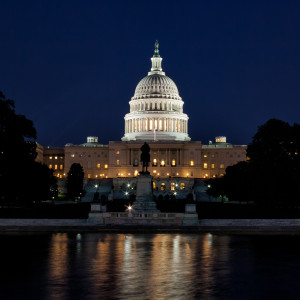The EPA recently announced the federal government’s most important action to date to limit release of greenhouse gases. This is a step that can potentially reestablish the nation’s lost leadership on global climate change. Yet already many members of Congress have signaled their determined opposition to the EPA plan. They should back off and let the EPA and the nation do what is necessary.
The EPA’s Clean Power Plan seeks to reduce carbon emissions from U.S. power plants, chiefly older and coal-fired units, by 30 percent from 2005 levels, by 2030. Such plants are the nation’s largest source of greenhouse gas emissions and they are being phased out already because of their old age and inefficiency.
The new plan could be very effective at reducing emissions, and it is a sensible and fair way to proceed. It also will aid the economy, create jobs, and help the nation become more innovative and competitive. The EPA’s exhaustive economic analysis shows that the climate and public health benefits are worth from $55 billion to $93 billion per year by 2030, an amount that greatly exceeds estimated compliance costs of $7.3 billion to $8.8 billion a year.
This is why the EPA defends its draft plan, now out for public comment, as a “commonsense” way to reduce risks to public health and the economy posed by climate change. The plan allows more than fifteen years for power generators and states to come into compliance, and it grants the states great latitude in deciding what actions they might take.
Among the diversity of choices that states have is to rely more on renewable sources, cleaner natural gas, or nuclear power. They also may choose to invest in energy efficiency and conservation, and they may join with other states in regional cap-and-trade market-based programs. The California program is working very well one year after its launch, and could easily accommodate other states.
So why are members of Congress threatening to torpedo the EPA’s initiative? Some of them, chiefly Republicans, continue to deny the reality of climate change science. This is despite the release of three major studies over the past year by the Intergovernmental Panel on Climate Change that offer the strongest evidence so far on the risks of climate change and a stark report by the U.S. National Climate Assessment Program that points to adverse effects of climate change that already are affecting the country, such as torrential rain storms and flooding in the Southeast and heat waves, droughts, and wildfires in the Southwest.
Other members, including some Democrats from coal-dependent states and others from oil and gas producing areas, worry that their states will be hurt economically from the EPA plan. That objection is more understandable, although the plan provides so many options that each state should be able to select those policies that best suit its distinctive situation.
Still other members object on ideological grounds. They dislike government power and regulation and they see in the rule a threat that the EPA and the states will somehow dictate how people and corporations should live their lives and run their businesses. It is nothing of the sort, but these members would object no matter what the EPA proposes.
Climate change is a serious problem for us and the world, and the implications of the most recent set of scientific reports are clear. The United States must try to limit the worst effects of climate change. It also must learn how best to adapt to the inevitable impacts that are coming regardless of what we now do, from flooding of coastal areas by storm surges to drought and water shortages in the West. These challenges call for governments at all levels to respond with creative, effective, and equitable policies, and preferably to act in a bipartisan manner to identify and approve such policies.
Yet if Congress cannot address climate change effectively and do so in a timely manner, we have no choice but to rely on the kind of executive action that President Obama and his EPA have chosen. The president has said many times that he prefers a congressional solution to the problem. As president, however, he would be irresponsible to wait indefinitely for a highly partisan and gridlocked Congress to act.
So the EPA plan is what we have for now, and some members of Congress will criticize it severely while offering no alternative of their own. There is also little doubt that some states and interest groups will sue the agency to stop or delay any action that limits use of coal or other fossil fuels.
Let’s hope that the EPA plan and thoughtful state policy choices win the day. We are long past the time when we should have acted on climate change, and to wait any longer is irresponsible.

